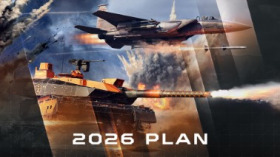
- For PC
- For MAC
- For Linux
- OS: Windows 10 (64 bit)
- Processor: Dual-Core 2.2 GHz
- Memory: 4GB
- Video Card: DirectX 11 level video card: AMD Radeon 77XX / NVIDIA GeForce GTX 660. The minimum supported resolution for the game is 720p.
- Network: Broadband Internet connection
- Hard Drive: 23.1 GB (Minimal client)
- OS: Windows 10/11 (64 bit)
- Processor: Intel Core i5 or Ryzen 5 3600 and better
- Memory: 16 GB and more
- Video Card: DirectX 11 level video card or higher and drivers: Nvidia GeForce 1060 and higher, Radeon RX 570 and higher
- Network: Broadband Internet connection
- Hard Drive: 75.9 GB (Full client)
- OS: Mac OS Big Sur 11.0 or newer
- Processor: Core i5, minimum 2.2GHz (Intel Xeon is not supported)
- Memory: 6 GB
- Video Card: Intel Iris Pro 5200 (Mac), or analog from AMD/Nvidia for Mac. Minimum supported resolution for the game is 720p with Metal support.
- Network: Broadband Internet connection
- Hard Drive: 22.1 GB (Minimal client)
- OS: Mac OS Big Sur 11.0 or newer
- Processor: Core i7 (Intel Xeon is not supported)
- Memory: 8 GB
- Video Card: Radeon Vega II or higher with Metal support.
- Network: Broadband Internet connection
- Hard Drive: 62.2 GB (Full client)
- OS: Most modern 64bit Linux distributions
- Processor: Dual-Core 2.4 GHz
- Memory: 4 GB
- Video Card: NVIDIA 660 with latest proprietary drivers (not older than 6 months) / similar AMD with latest proprietary drivers (not older than 6 months; the minimum supported resolution for the game is 720p) with Vulkan support.
- Network: Broadband Internet connection
- Hard Drive: 22.1 GB (Minimal client)
- OS: Ubuntu 20.04 64bit
- Processor: Intel Core i7
- Memory: 16 GB
- Video Card: NVIDIA 1060 with latest proprietary drivers (not older than 6 months) / similar AMD (Radeon RX 570) with latest proprietary drivers (not older than 6 months) with Vulkan support.
- Network: Broadband Internet connection
- Hard Drive: 62.2 GB (Full client)
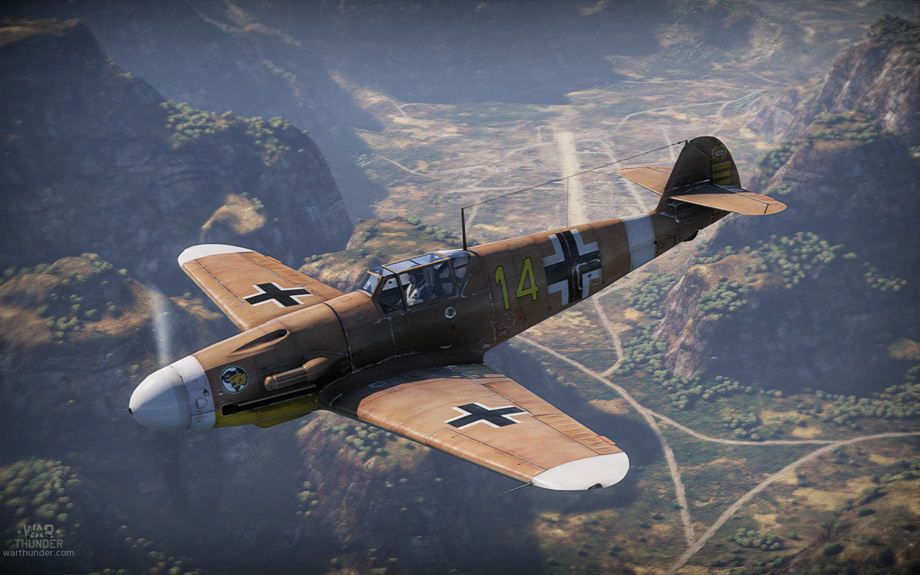
Hans-Marseille's Bf 109 F-4 Trop skin by zFireWyvern | download here
At approximately midday on September 30th 1942, Dr. Bick of the 115th Panzer Grenadier Regiment stopped his car at a remote site near Sidi Abdel Rahman on the northern coastline of Egypt. Lying only metres from an unopened parachute, face down, was the body of a young aviator. Dr. Bick rushed over to examine the body; the young man was thin and emaciated, and had probably been killed by a horrific wound at his hip where his body had slammed into his own aircraft whilst attempting to jump out. At his throat was the Knights Cross with Oak Leaves and Swords. Hans-Joachim Marseille had survived undefeated from countless combat encounters, only to be killed by his own aircraft. He had transitioned from a selfish, immature and bitterly unpopular pilot into being hailed and idolized by his comrades and subordinates as possibly the greatest natural fighter pilot who ever lived. At the age of 22, he was now lost to the Luftwaffe and his comrades.
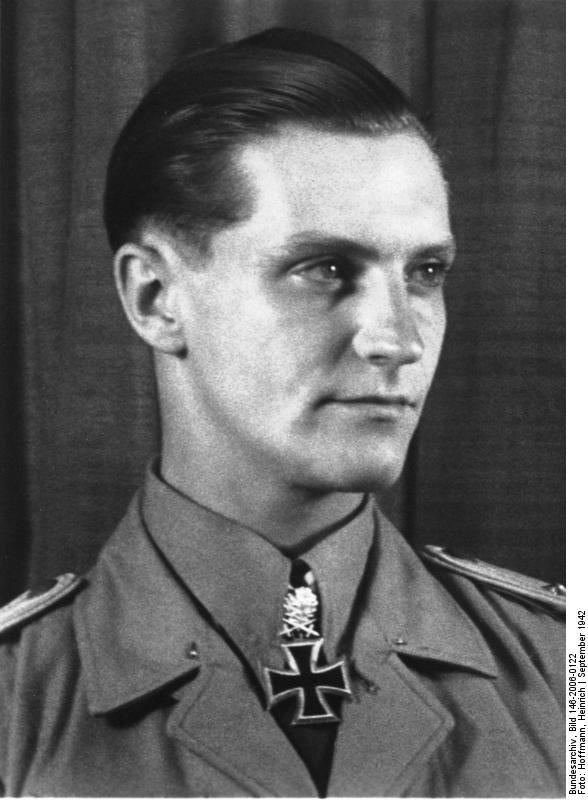 |
|
Hans-Joachim Marseille, September 1942 |
Born in Berlin on December 13th, 1919, Hans-Joachim Marseille’s formative years were dominated by his domestic situation. His father, a strict army officer, divorced Hans-Joachim’s mother when he was still very young, in far less than amicable circumstances. Bitter and resentful towards his authoritative father, Marseille’s attitude manifested itself at school where he was constantly punished for his idle, lazy attitude and complete unwillingness to take academia seriously. His teachers commented that his natural intellect only made this all the more frustrating. He did, however, show a remarkable aptitude for music and was described as a child prodigy, particularly when it came to his love of American blues and jazz.
After completing his compulsory Reich Labour Service in 1938, Marseille carried out basic infantry training; whilst his determination was remarked upon, his complete lack of teamwork was also highlighted. Still in regular contact with his father – now a high ranking officer – he mentioned his aspirations to become a fighter pilot. His father supported this wholeheartedly and wrote letters to influential friends to secure Marseille a training slot within the ranks of the Luftwaffe.
The trends in Marseille’s academic life repeated during pilot training; he excelled at ground school and aerobatics, but displayed major problems with team work and discipline. Reprimanded and punished on numerous occasions, he caused resentment amongst his peers when his father stepped in again and again to pull rank and ensure Marseille was not kicked out of training. Even when given routine duties at his base, it was not uncommon for him to simply shirk his responsibilities so as to go out to nightclubs, leaving notes attached to colleagues’ lockers to force them to stand in for him.
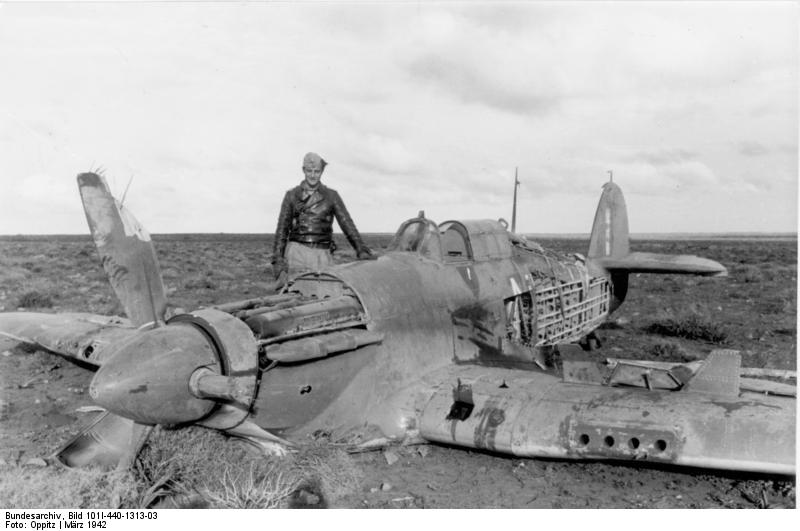 |
|
Marseille inspecting a Hawker Hurricane, shot down by him |
On August 10th 1940, now a qualified fighter pilot, Marseille joined I.(Jagd) LG2 near Calais-Marck, who were regularly engaging in combat with the RAF during the height of the Battle of Britain. On his first combat sortie, Marseille abandoned his wingman to shoot down a British fighter, without even calling his intentions over the radio. Whilst he was again reprimanded, it was in a letter to his mother where he revealed a far larger problem: he was torn up with guilt at taking another human life. By the end of the Battle of Britain, Marseille had claimed seven British fighters destroyed; he continued to regularly abandon his wingman and fail to call when sighting the enemy so he could attack first. He also crashed or bailed out of six Bf109s, through battle damage or running out of fuel, prompting his bitter colleagues to comment on him also being an RAF ace.
After a brief period with II./JG52, Marseille was posted to I./JG27, which took its battle weary Bf109Es out to North Africa in April 1941 to support the Afrika Korps against the British and Commonwealth forces. Marseille, obsessed with his own personal victory tally, saw his score rising sharply but with it a continued hostility from his peers and seniors alike, not helped by his propensity to play practical jokes on any and all members of his squadron. He was grounded on many occasions due to his indiscipline in the air and on the ground, which led to delays in his promotions.
From May 2nd through to June 16th, Marseille not only failed to shoot down a single enemy aircraft but also regularly returned home with his own fighter severely shot up. His reputation as an immature prankster and risk taker became more set in stone, and his plummeting moral brought about by his drought of kills was only worsened by regular bouts of dysentery and ill health. However, after shooting down two Hurricanes on June 17th, Marseille was back on form: on September 24th he shot down four Hurricanes in 15 minutes near Buq Buq in Libya. By the end of 1941, Marseille had shot down 36 aircraft and had been awarded the German Cross in Gold.
At the end of the year, ravaged by malaria, jaundice, dysentery and gastroenteritis, the waif like Marseille was ordered back to Berlin to recover. Whilst on route home, he received a telegram from his mother: Marseille’s sister had been murdered. A quieter, angry Marseille returned to North Africa. Upon finding that his latest promotion had been denied on the recommendation of his CO, he took off and strafed the sand in front of his CO’s tent. Only his Group Commander stepping in averted the court martial.
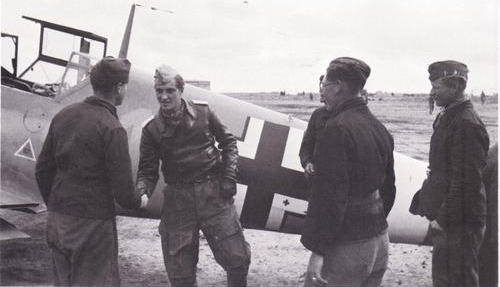 |
|
Marseille thanking his ground crew for keeping his aircraft in good condition |
Marseille still found his revenge: on February 8th 1942 he shot down four P40s in two flights to beat his CO to 40 victories and earn the coveted Knights’ Cross first. Only four days later he shot down four fighters in six minutes. A more mature Marseille was now emerging; a dependable wingman and calculating pilot in the air, he was fast earning the respect and admiration of his comrades.
His chivalrous nature was also apparent; on one occasion he flew in formation with a heavily damaged P40 to assist the wounded pilot in landing. Upon landing he immediately called to a medic and drove him out into the desert to find the P40’s crash site. He helped the wounded pilot out and over to the medic. Wherever possible, Marseille would visit the pilots he had shot down in hospital. He also flew over enemy airfields to drop messages to inform allied squadrons of the condition of their downed comrades.
Marseille became a legend in Germany. As his rising tally approached 100, he received sacks of fan mail from women all over the country. He boasted of his female conquests even more than his aerial victories. He was never afraid to speak his mind; when awarded a medal by Benito Mussolini, he remarked dryly to the Duce’s aide: “he thinks a lot of himself, doesn’t he?” When Hitler heard of this, he said that he thought Marseille to be a good judge of character.
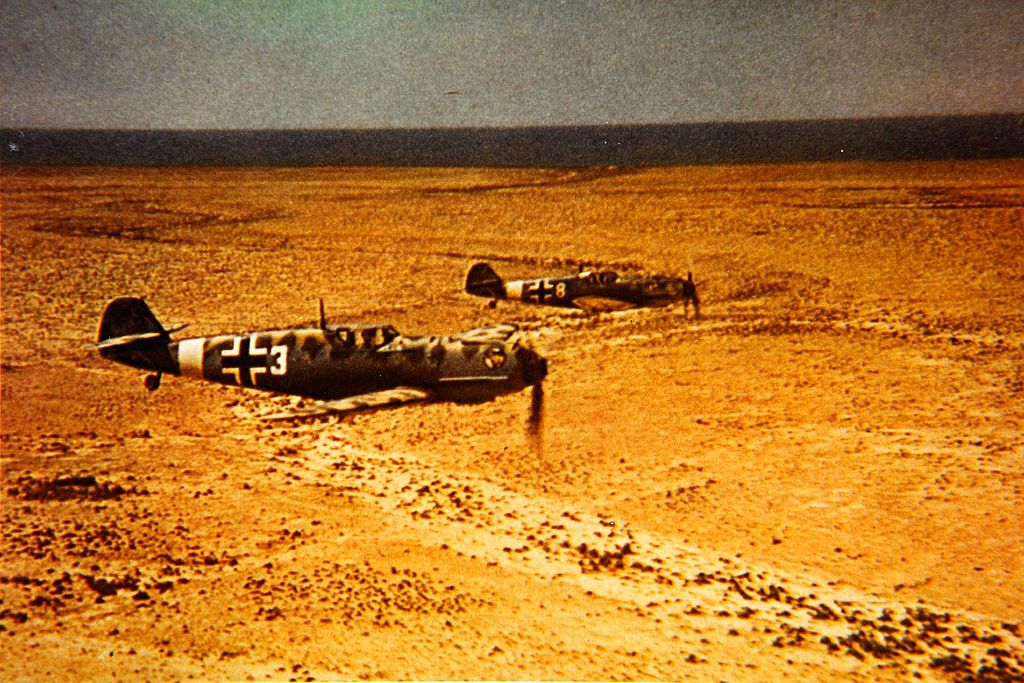 |
|
Aircraft of JG 27, Marseilles late unit, flying over North Africa |
Even with Hitler’s approval, Marseille was anything but a party member. Openly and vocally anti-Nazi, he even insulted Hitler personally when asked to play piano at an evening event in front of the upper echelons of the Nazi party. After behaving himself for some time, he then broke out into raucous American jazz music, prompting Hitler to cancel the party and leave the room in a rage. Marseille even made a point of keeping a black South African POW as a personal servant, knowing full well the fate that would befall him if he fell into the hands of the Nazis. The two became the best of friends.
Marseille’s crowning achievement came on September 1st 1942, when he claimed a staggering eight kills in ten minutes. Flying several missions on this date, he claimed a record breaking 17 kills in one day. Controversy still exists as to whether these kills can be confirmed, but more than one historian has backed his claims. Marseille had 158 victories accredited when he was killed on September 30th, 1942. After suffering engine problems, smoke filled the cockpit of Marseille’s Bf109G -2 whilst returning from an escort mission. Chocking, escorted by his wingmen, he stayed with the fighter long enough to cross German lines before jumping out. His body impacted with the 109’s tailfin, and he was probably killed instantly.
Hauptmann Hans-Joachim Marseille was the most successful fighter pilot who fought against the western allies during the Second World War. He was posthumously awarded diamonds to his Knight’s Cross. His grave is inscribed with a simple epitaph: “undefeated”.
With an upcoming update we will introduce the insignia of the Jagdgeschwader 52, one of the units that Hans-Joachim Marseille flew with:
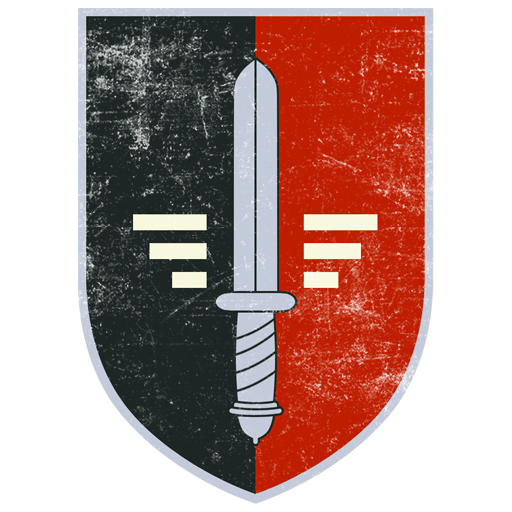
About The Author
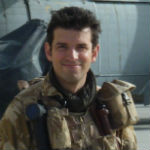 |
Mark Barber, War Thunder Historical Consultant Mark Barber is a pilot in the British Royal Navy's Fleet Air Arm. His first book was published by Osprey Publishing in 2008; subsequently, he has written several more titles for Osprey and has also published articles for several magazines, including the UK's top selling aviation magazine 'FlyPast'. His main areas of interest are British Naval Aviation in the First and Second World Wars and RAF Fighter Command in the Second World War. He currently works with Gaijin Entertainment as a Historical Consultant, helping to run the Historical Section of the War Thunder forums and heading up the Ace of the Month series. |


